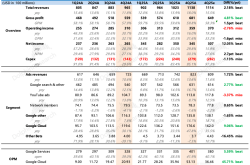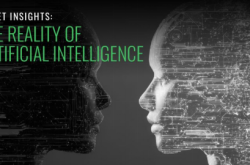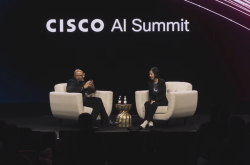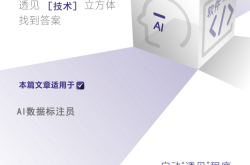The Rise of Doubao in the Era of Agents
![]() 07/14 2025
07/14 2025
![]() 1138
1138
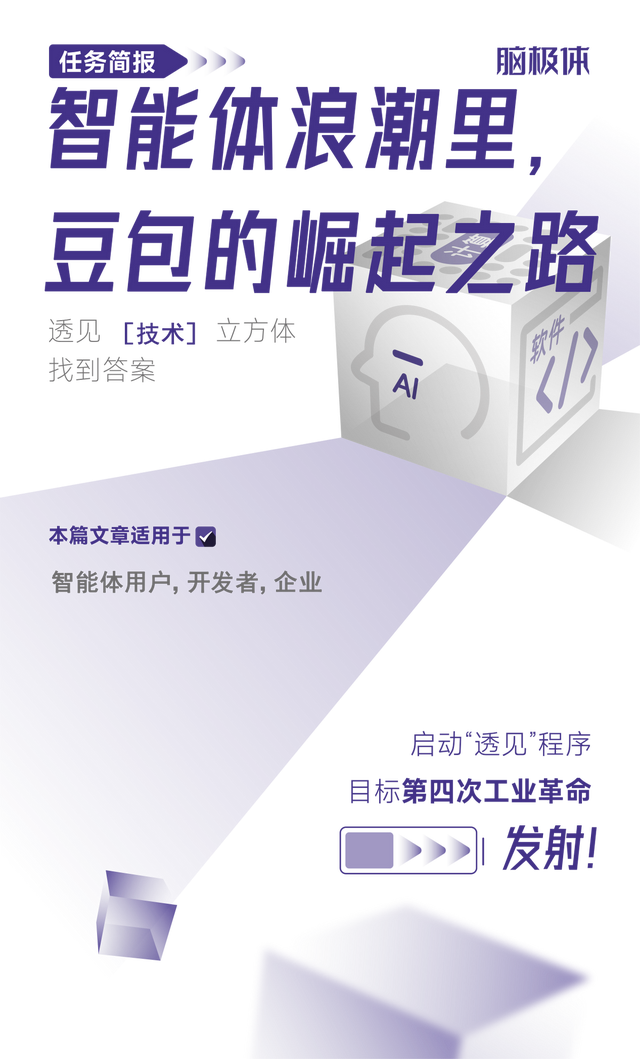
In 2025, large model vendors and AI companies collectively focused on the direction of Agents. In the increasingly crowded Agent sector, one figure cannot be ignored by peers: Doubao.
The reason is simple: Doubao didn't come the earliest, but its rise has been rapid. As early as 2023, OpenAI launched the Plugin platform, hoping to build a diversified Agent ecosystem; domestic AI giants and the "Six Little Tigers" were also in full swing, while Doubao only began its public beta in August 2023.
By the end of 2024, QuestMobile's 2024 AIGC Application Development Annual Report data showed that Doubao's monthly active users had exceeded 75 million.
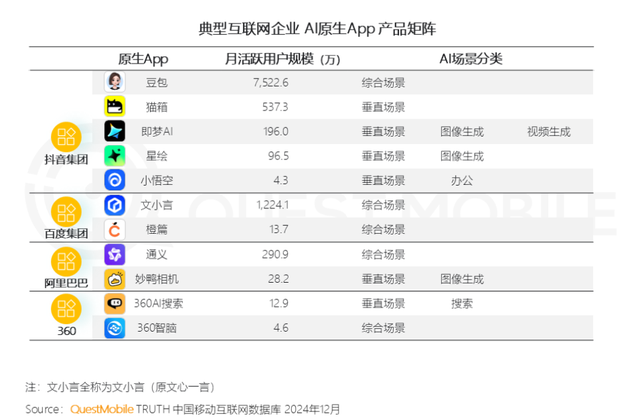
The enthusiasm of netizens for creating Agents on Doubao is unmatched by other platforms. For example, recently, many netizens have been enthusiastic about creating secondary content for Doubao, creating new "Doubao personas" for her, coming up with abstract IPs like "Dousha" and "Doujiao", and some users have even made "pain bags" adorned with Doubao badges. This collective meme-creation usually only appears with phenomenenal IPs.
Whether it's cold data or the "Doubao Universe" that establishes emotional connections with users, it shows that Doubao has come out on top in the competitive AI Agent sector.
The Agent boom has only just begun, and there is still ample time and opportunity for various players. Therefore, it is necessary to understand what Doubao relied on for its rise and whether its impressive performance can be replicated.
We believe that the core of Doubao's rise in the direction of Agents lies in its thorough implementation of technological democratization. Let's explore how it was achieved step by step.

First, let's briefly review Doubao's Agent rise.
On August 15, 2023, Doubao quietly began its public beta. At that time, it was only a relatively simple AI conversation product. At that time, the wind of AI Agents had just picked up in Silicon Valley, and domestic leading AI enterprises began to experiment on a small scale, such as SenseTime launching a generalist AI Agent... At this time, Doubao was not prominent in the direction of Agents.
However, Doubao was the first to fill an industry gap.
As mentioned in one of our 2023 articles, the opportunities for large model applications represented by AI Agents were still very early at that time. What should an Agent look like? What's its name? Does it have a gender? What personality does it use to converse with users? What use cases are there? These product-level "no-man's lands" were blank spots for Agents at that time.
The turning point occurred in November 2023, when Doubao filled this gap. At that time, ByteDance established the independent AI organization FLOW, which began to accelerate its efforts in the AI application layer, and Doubao raced towards the direction of Agents.
Doubao launched a large number of official Agents, such as English learning assistants, chatting, AI-generated comics, etc., launched text-to-image product capabilities, and began multimodal exploration. At this point, Doubao gradually transformed into an Agent platform with diverse scenario service capabilities.
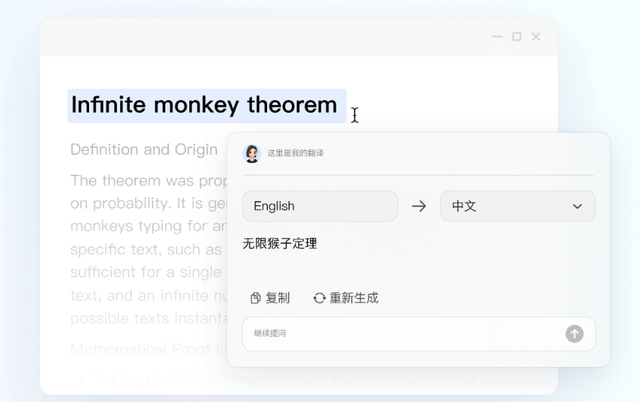
Doubao users can not only chat with the default Agent but also find specific Agents to solve specific problems, such as oral English tutors, fitness coaches, or even philosophy scholars. They can also participate in the creation of UGC Agents to create their personalized Agents.
It can be said that Doubao made many ordinary people aware of what an Agent could look like for the first time. It turns out that it can be ever-changing and not far away from them. Since then, the number of Doubao Agents has gradually begun to explode, with dedicated Agents in various fields such as life, study, work, and entertainment.
With applications, user groups have therefore coalesced, and Doubao's Agent visits and activity levels have continued to rise, ultimately reaching a scale far exceeding its competitors in the same period.
Only by making Agents a toy that everyone can play with can the potential of large model technology be unleashed. This truth is understood within the industry, but few can truly achieve it. Why can Doubao do it? The answer lies in the users.

In the Agent sector, there are giants like OpenAI internationally and domestic giants like Baidu, Alibaba, and Tencent. The competition is so fierce. What makes Doubao stand out? Let's put ourselves in the shoes of users.
You are a new user and can't say clearly what kind of Agent you need, let alone what these Agents can help with. You won't realize "Oh, it can be used like this!" until a specific Agent is presented to you.
For Agents, supply usually comes first, followed by demand. In this process, whether a novel Agent can catch your eye becomes crucial. Doubao has an advantage in Agent exposure.
AIGC startups like Kimi and Zhipu have also conducted large-scale ad investments, but due to factors such as funding, channels, and strategy changes, their promotions are phased. Doubao, backed by ByteDance, has Douyin, Toutiao, and Xigua Video, which are all major traffic sources. With the continuity of brand recognition and usage habits, the probability of contacting and trying Doubao greatly increases.

Moreover, Doubao can integrate ecological products to penetrate various scenarios, recommending product combinations to you in Douyin live broadcasts; helping you handle trivial matters when using Feishu for work, making people unconsciously use it. This is something that most AI startups struggle to achieve.
Now that you have started using Agents, you have a new question: If the Agent platform can only become popular by relying on traffic and scenarios, then Doubao doesn't seem to have any significant advantages over AI giants like Baidu Wenxin, Alibaba Tongyi, and Tencent Hunyuan. After all, if the giants are willing to invest money and resources, they could potentially stifle Doubao in its growth stage.
But that's not the case. Why? The key lies in: Doubao's Agent users have dual identities as both users and developers.
Some say that Agents are the Apps of the AI era. While Agents do indeed hold such a position, they are fundamentally different from Apps. Users mostly just passively use Apps, but when facing Agents, users can become developers. Shifting from the user experience to the development level, Doubao's differentiated advantage is also significant compared to AI giant platforms.
Now, you are not satisfied with just using Agents and plan to develop your own proprietary Agent. When you conduct competitive research on different development platforms, the second battle: development ease of use, begins.
First, you will look at model performance.
After comparing a bunch of base models like GPT, BAT, Doubao, Spark, etc. You feel that although the Doubao large model's performance is not the best, it also has no obvious shortcomings. Multimodality can meet the needs of most application scenarios. Moreover, it's free. Compared to those expensive large models, the threshold for Doubao is suddenly lower, and there's no loss in trying it out.
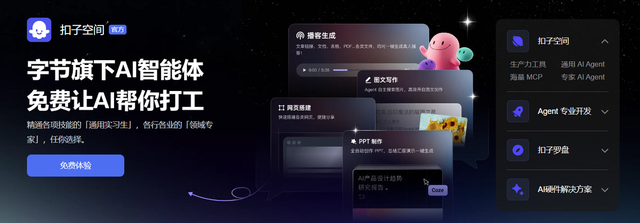
Without programming experience, you plan to look at the operating difficulty next. You find that although other platforms also have low-code development, they still require some technical background. Doubao is integrated with Coze, supporting Coze to create and publish Agents to Doubao. The operation on the Coze platform is also the simplest.
You don't need to write code; you can build pages by dragging and dropping, and there are a large number of ready-made Agent templates that can be directly copied. If you want to use Agents as assistants for learning, work, life, financial management, etc., you can get the same one with one click. In comparison, the Agent ecosystems and templates of other large companies are not as rich as Doubao's.
If you want your Agent to better understand your personalized needs, building a personal knowledge base is not complicated. Upload a PDF, Excel file, or connect to data from Feishu, Notion, and it can automatically organize it.
The Agent created on Coze can be deployed to apps like Doubao, Douyin, Feishu, and even official accounts with one click, and can be used directly, giving you a sense of accomplishment.
Since 2025, the Agent sector has attracted more and more professional individual developers and enterprise developers. When they want to conduct in-depth, complex function development, Doubao is also included in their choices.
On the one hand, Doubao continues to make efforts in model performance and function expansion. On June 11, Volcano Engine, a subsidiary of ByteDance, held the Force Motive Force Conference, releasing new models such as Doubao Large Model 1.6 and Video Generation Model Seedance 1.0 pro, and upgrading AI cloud-native services such as the Agent Development Platform, further consolidating its position in the Agent sector.
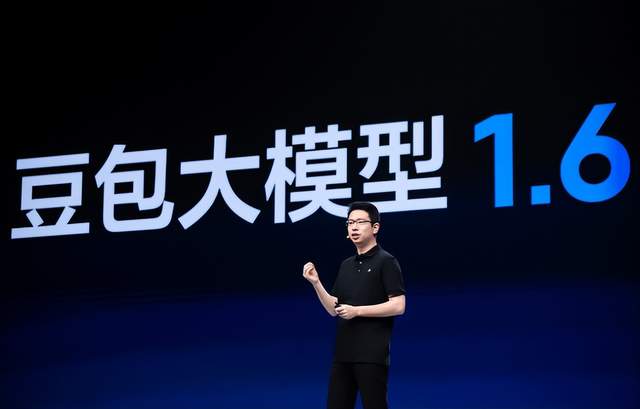
For professional developers, Doubao's linkage with Volcano Engine is like an Agent development accelerator, providing powerful computing power support and modular components, eliminating complex links such as model training and computing power debugging, and establishing a closed loop from creation to monetization. Agents developed by developers on Volcano Engine can quickly reach a massive audience through the Doubao ecosystem and achieve precise distribution through traffic entry points such as Douyin and Toutiao.
In the end, you find that Doubao is exemplary in lowering the thresholds for using and developing Agents. Those with better models are not as cheap as it, those with the same price are not as simple as it, and those with resources don't have as many scenarios as it. For both ordinary users and developers, Doubao is a hard-to-refuse choice.
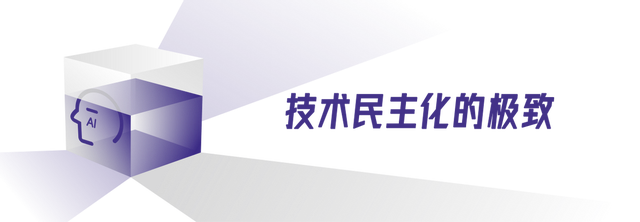
So, what has Doubao achieved that AI giants, internet giants, and AI startup unicorns haven't? That is, it has taken technological democratization to the extreme.
Technological democratization, in layman's terms, means not allowing technology to be monopolized by a few elites but allowing the public to participate. As early as around 2012, when the third wave of AI technology emerged, industry heavyweights like Li Feifei and Musk repeatedly emphasized the importance of AI democratization. Although domestic technology enterprises don't often use this term, they also spare no effort in promoting technology for the benefit of all.
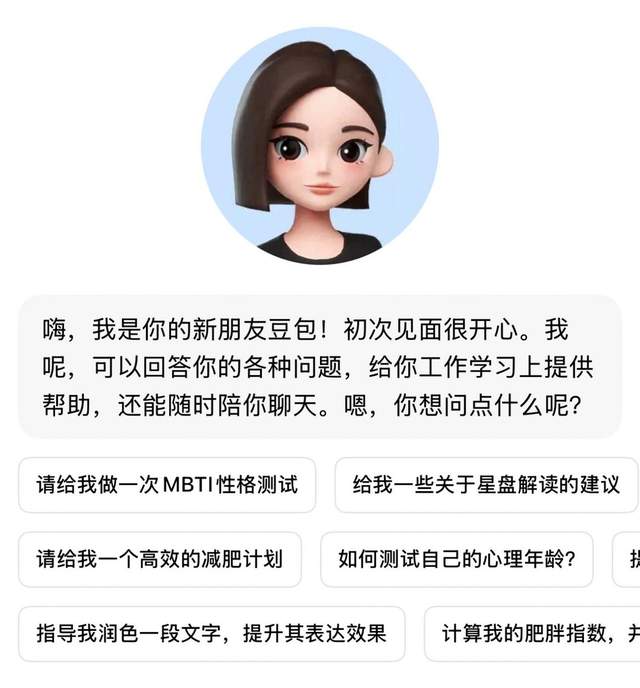
If large models are the "toys" of engineers, then Agents are "Legos" that ordinary people can easily get their hands on, and Doubao is the one that pushes this toy the farthest and lowers the threshold the most.
Whether it's an experienced professional developer or a beginner with no programming foundation, they can create personalized Agents in a short period. Technological democratization lowers the development threshold, thereby promoting UGC content growth and ultimately driving the increase in Doubao's user base.
The ability to thoroughly implement technological democratization is supported by the resource linkage driven by Doubao's Agent strategy. Free for C-end users, an efficient and convenient development environment with Coze, and cloud services from Volcano Engine. Facing the uncertainty of mass user needs, ByteDance's ecological product matrix provides a vast array of scenarios for Doubao, with novel Agents always igniting user interest.
These capabilities jointly support Doubao in pushing technological ease of use to the extreme, coming out on top in the Agent sector.
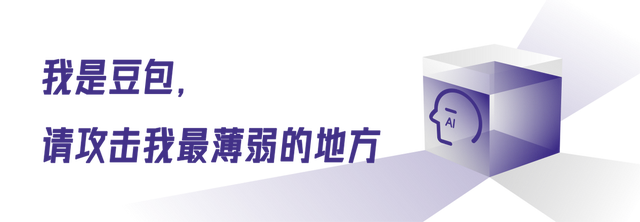
Of course, while Doubao has performed impressively in the direction of Agents, it is not perfect.
For example, at the technical level, netizens have summarized the "Doubao personality" as being a bit dumb but diligent. This shows that Doubao still has room for improvement in large model capabilities. Moreover, I found that Doubao's security review is strict, and the generated content is conservative and lacks creativity. For example, with the same prompt, Doubao sometimes refuses to answer and forgets the preceding content after interruption, leading to a decrease in dialogue coherence and affecting the experience of interacting with the Agent, while Deep Seek can respond normally with more creative answers.

In terms of commercialization, Doubao's Agents for C-end users are free, and the low-priced API strategy for development attracts users but also compresses profit margins, which is unsustainable in the long run. In the future, it will definitely have to delve deeper into monetization methods.
In addition, compared with some mature developer communities, Doubao's developer community mechanism still has room for further improvement. For example, I found that the high-quality Agents on the Coze platform are mostly from officials, and the quality of Agents contributed by external developers is mixed. It's difficult to judge their quality just by looking at the number of users, and sometimes it wastes time.
An imperfect Doubao also shows that the current extreme is only the starting point for the future. The Agent field is far from being settled. Other AI enterprises can learn from Doubao's strengths and weaknesses and continue to promote the evolution of Agents.
From this perspective, the greatest value of Doubao's rise in the Agent sector is that it has illuminated a path for technological inclusiveness, allowing more people to see the possibility of AI technology stepping out of the elite circle and truly serving the public.
The more technology enterprises that devote themselves to the technological democratization process of Agents, the sooner the day will come when humans and AI truly reconcile.


